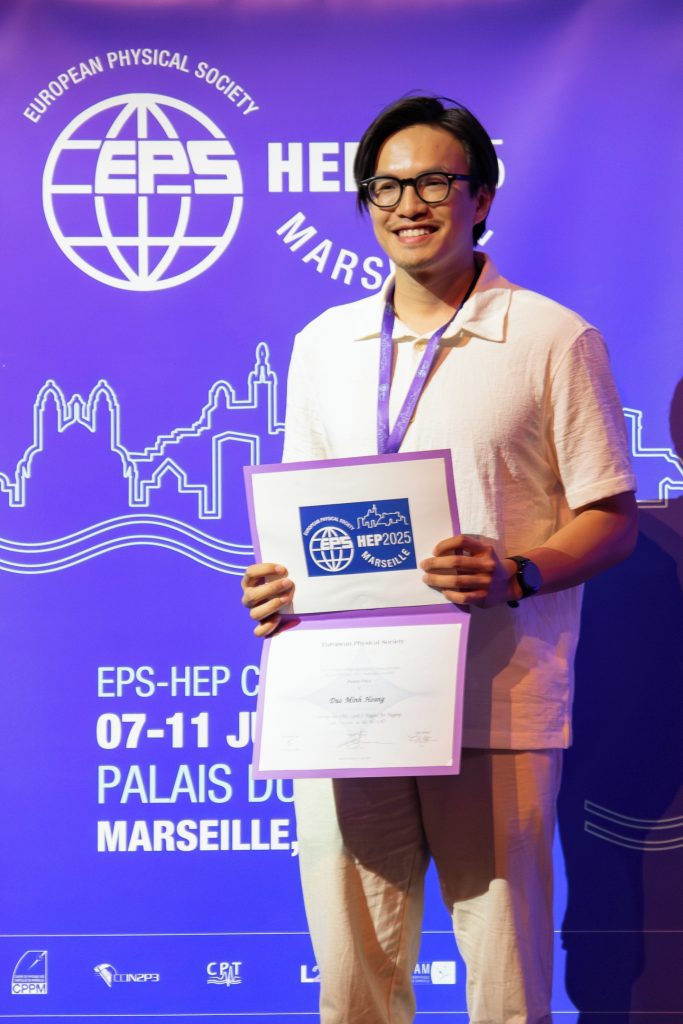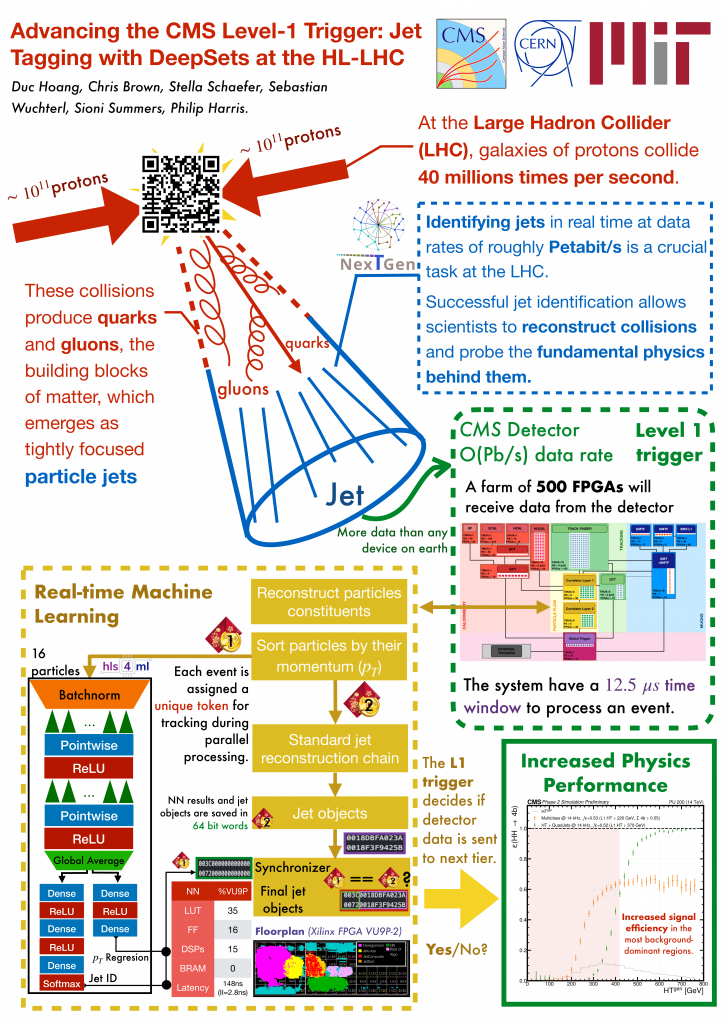PS-HEP 2025 Poster Prize Goes to… NGT’s Duc Minh Hoang!

The European Physical Society Conference on High Energy Physics (EPS-HEP 2025) lit up the city of Marseille from July 14–18, bringing together hundreds of physicists at the stunning Palais du Pharo to dive into the latest breakthroughs in high energy, astroparticle, and neutrino physics.
Among the packed poster session—with over 100 impressive entries—Duc Minh Hoang, a PhD student with the Next Generation Triggers project working on the CMS experiment under Task 3.6, stood out as one of just three winners of the coveted Poster Prize.
Duc’s poster spotlighted his work on a new multi-class neural network tagger for the CMS Level-1 Trigger (L1T)—a key component of the Phase-2 Upgrade for the High-Luminosity LHC. Built on a compact DeepSets architecture and trained using Quantization Aware Training, his model runs directly on FPGAs and classifies particles in real time—including jets, taus, b- and c-quarks, electrons, muons, and more. It even estimates transverse momentum. The result? A smarter, faster, and more selective L1 trigger that boosts CMS’s ability to catch rare physics processes like di-Higgs and Vector Boson Fusion.

After receiving the prize, Duc shared how surprised he was: “I honestly didn’t expect to win the poster prize at all—especially among more than 100 amazing posters presented here!” But the excitement quickly turned into pride. For Duc, this achievement wasn’t just personal—it was about teamwork: “I’m incredibly happy, not just for myself but for my entire team, because this truly reflects our collective effort.”
A strong believer in the power of visual storytelling, Duc has always aimed to make complex science accessible and engaging. “I’ve always been passionate about communicating science in clear and visually engaging ways,” he said, “so it means a lot to have that recognized.”
He also took the opportunity to acknowledge those who helped bring the work to life: “Of course, none of this would’ve been possible without the rigorous review process from CMS, the support of my advisors—Dr. Sioni Summers at CERN and Dr. Philip Harris at MIT—and the fantastic NGT team I’m lucky to work with: Chris, Stella, and Sebastian.”
His success at EPS-HEP 2025 highlights not only the importance of real-time machine learning in future trigger systems, but also the strength of the collaborative work happening within the NGT community.
Congratulations to Duc and his team!
To see the wonderful pictures of the event by the CMS Comms team, you can click here.